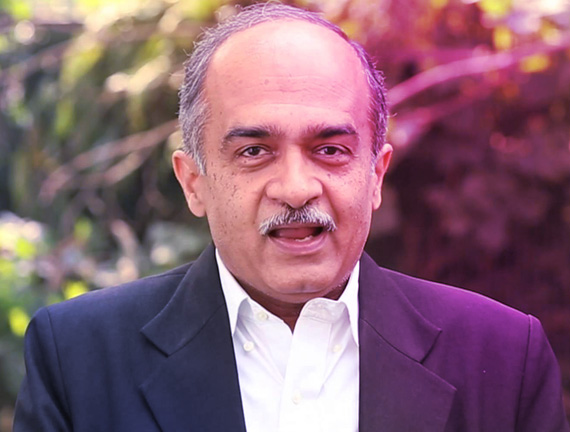

“Justice
is not hubris; power is not petulance and prudence not pusillanimity,
especially when judges are themselves prosecutors and mercy is a mark of
strength, not whimper of weakness. Christ and Gandhi shall not be lost on the
judges at a critical time when courts are on trial,†wrote Justice Krishna
Iyer, in a landmark judgement holding S. Mulgaonkar, then editor of the
Indian
Express, not guilty of contempt of court for an article published in the
newspaper. These words of Justice Iyer, one of the finest legal luminaries
decorated the annals of the apex court, should be the guiding spirit of the
Supreme Court as it is seized of the contempt of court case against senior
advocate Prashant Bhushan.
To put
the matter in the right perspective, it is important to refer to the two tweets
that agitated the judges to initiate contempt proceedings against Bhushan. One
post is related to his comment on a picture of Chief Justice of India S. A. Bobde
sitting on a high-end bike. In the other tweet, Bhushan expressed his opinion
on the last four Chief Justices of the apex court under whom “how democracy has
been destroyed in India.†Both the tweets together make 478 characters. But the
court issued a 108-page judgement that found Bhushan guilty of contempt of
court and convicted him in the case.
The
verdict of the apex court imperils freedom of speech. It amounts to gagging a
citizen’s right to comment on what he perceives right or wrong in the society
or in any institution. Bhushan is not the first person to find fault with
Supreme Court judges and their verdicts. As Attorney General K. K. Venugopal
told the Bench, several sitting and retired judges of the Supreme Court and
High Courts have commented upon corruption in the higher judiciary. In other
words, Bhushan has tweeted something what many others, including judges, have
said in the past. In fact, these comments and remarks are meant to show a
mirror to the judges and seek reforms in the higher judiciary. Instead, the
Supreme Court chose to take action against the whistle blower.
There is something strange in the
Supreme Court pestering Bhushan to apologise so that he may be let off the
hook. But the lawyer has made it abundantly clear that he is not seeking mercy
from the court and he is willing to submit to any penalty “inflicted†upon him
for discharging what seems to him the highest duty of any citizen.
The Bhushan episode should serve as a
test case for the courts to take recourse to the Contempt of Court Act more
judiciously and sparingly. Judges should not over-react to criticism unless it
leads to jeopardizing of justice. Showing magnanimity to critics and openness
to criticism is not weakness, rather it is a mark of strength of individuals
and institutions. It will only enhance the prestige of the highest Court of the
land. The status and stature of the Court depend on its fearless judgements and
unbiased interpretation of the law. It cannot allow its reputation to be mired in
controversy due to a punishment handed out to a lawyer who acted on his conviction.